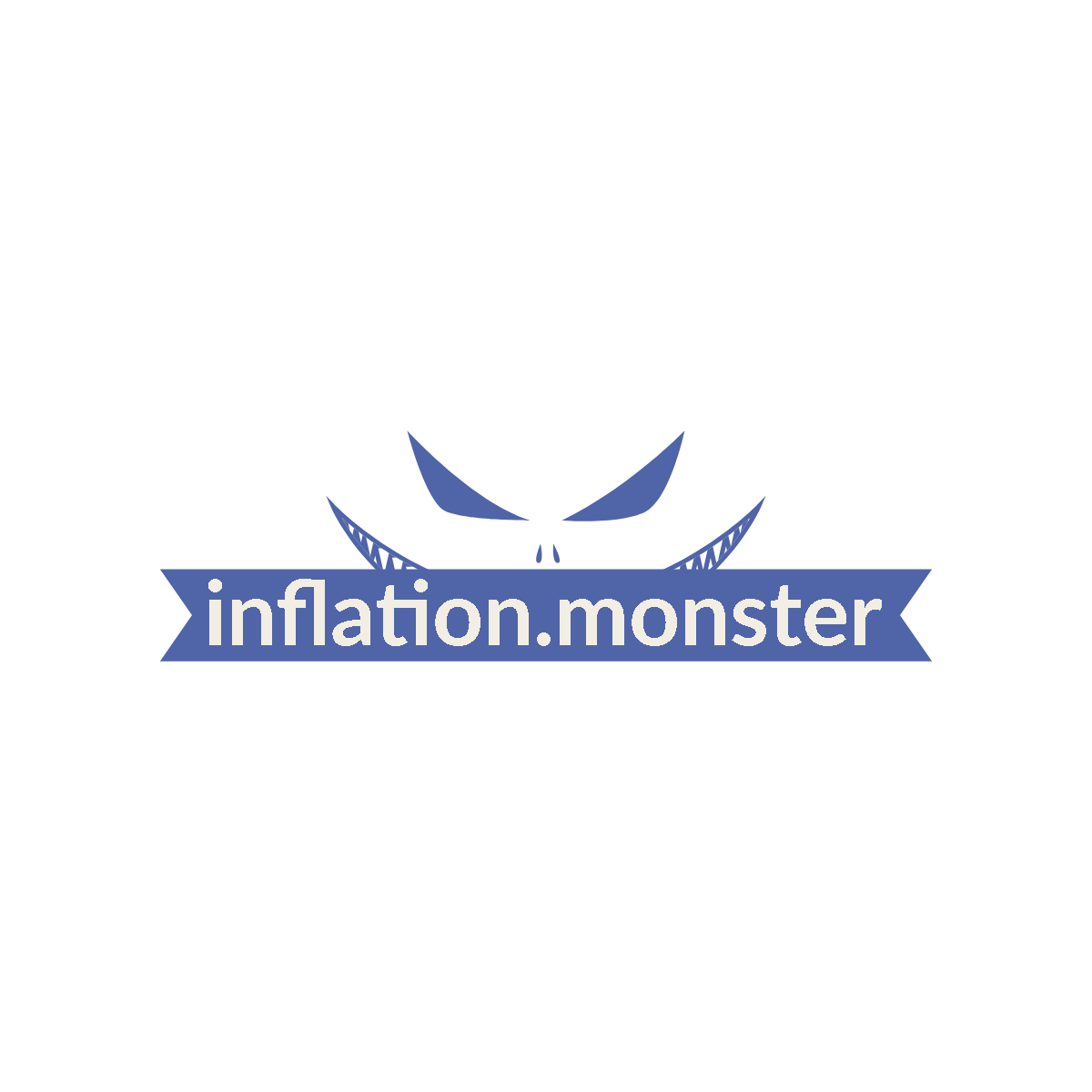In our quest to understand the inner workings of inflation and its far-reaching effects on money and economics, we find ourselves intrigued by the powerful influence of geopolitical events. As we explore the intricate relationship between inflation and the ever-changing political landscape, we uncover a fascinating connection that sheds light on the intricate dance of supply and demand, currencies and markets. Buckle up as we embark on a journey that uncovers the hidden forces behind inflation, and how geopolitical events can shape the monster that is inflation.

Understanding Inflation
Definition of Inflation
Inflation refers to the sustained increase in the general price level of goods and services in an economy over a period of time. It is often measured by the Consumer Price Index (CPI) or the Producer Price Index (PPI), which track changes in the prices of a basket of goods and services consumed by individuals or produced by businesses, respectively. Inflation can erode the purchasing power of money and affect the overall economic stability of a country.
Causes of Inflation
There are several factors that can contribute to inflation. Demand-pull inflation occurs when there is excessive demand for goods and services, causing prices to rise. This can happen when there is strong consumer spending fueled by increased wages or government stimulus policies. Cost-push inflation, on the other hand, occurs when the cost of production increases, leading to higher prices for goods and services. This can be caused by factors such as rising wages, higher raw material costs, or increased taxes and regulations.
Types of Inflation
Inflation can be classified into various types based on its causes and effects. Moderate inflation, also known as creeping inflation, refers to a low and relatively stable increase in prices over time. Hyperinflation, on the other hand, is an extreme form of inflation characterized by extremely rapid and typically accelerating price increases, often exceeding 50% per month. Other types of inflation include galloping inflation, stagflation, and deflation, which is a decrease in the general price level.
Effects of Inflation on the Economy
Inflation can have both positive and negative effects on the economy. Moderate inflation can be beneficial as it encourages spending and investment, stimulates economic growth, and reduces the burden of debt for borrowers. However, high inflation can erode the value of savings, reduce purchasing power, and create uncertainty and instability in the economy. Inflation can also lead to wage-price spirals, where workers demand higher wages to keep up with rising prices, further fueling inflation.
Geopolitical Events and Their Impact
Definition of Geopolitics
Geopolitics is the study of how geography, politics, and economics influence and shape international relations and world affairs. It examines the relationships between nations, their territorial boundaries, resources, and power dynamics. Geopolitical events, such as wars, political conflicts, economic sanctions, and trade disputes, can have a significant impact on the global economy.
Examples of Major Geopolitical Events
There have been numerous major geopolitical events throughout history that have had far-reaching effects on the global economy. Examples include the fall of the Berlin Wall and the subsequent reunification of Germany, the 9/11 terrorist attacks and the subsequent war on terror, the Brexit referendum and the United Kingdom’s withdrawal from the European Union, and the ongoing trade tensions between the United States and China.
Impact of Geopolitical Events on the Global Economy
Geopolitical events can have profound effects on the global economy. Wars and political conflicts can disrupt trade routes, damage infrastructure, and create uncertainty, leading to economic downturns. Economic sanctions, imposed by one country on another, can restrict trade and investment, impacting both the sanctioned country and its trading partners. Trade disputes and protectionist measures, such as tariffs and quotas, can disrupt global supply chains and increase costs for businesses and consumers.
The Connection Between Inflation and Geopolitical Events
How Geopolitical Events Can Influence Inflation
Geopolitical events can have a direct or indirect impact on inflation. Directly, they can disrupt the supply of goods and services, leading to shortages and higher prices. For example, political instability in oil-producing countries can disrupt oil supplies, driving up oil prices and causing a ripple effect on the prices of other goods and services that rely on oil. Indirectly, geopolitical events can affect consumer and business confidence, leading to changes in spending and investment patterns that can impact inflation.
Role of Supply and Demand
Supply and demand dynamics play a crucial role in the relationship between inflation and geopolitical events. Disruptions in the supply of goods or services can lead to scarcity, driving up prices as demand exceeds supply. Conversely, if geopolitical events result in reduced demand, such as through economic sanctions or decreased consumer confidence, prices may decrease as businesses lower prices to stimulate demand. Understanding the interplay between supply and demand is essential in predicting the inflationary effects of geopolitical events.
Impact of Political Instability on Inflation
Political instability can have a significant impact on inflation. Uncertainty and unrest can lead to capital flight, reduced investment, and decreased productivity, all of which can contribute to inflationary pressures. In addition, political instability can result in policy changes or fiscal mismanagement that may exacerbate inflation. For example, countries experiencing political turmoil may resort to excessive money printing or currency devaluation to finance their activities, leading to higher inflation.
Effects of Trade Wars on Inflation
Trade wars, characterized by the imposition of tariffs and retaliatory measures between countries, can have inflationary effects. Tariffs increase the cost of imported goods, leading to higher prices for consumers. They can also disrupt global supply chains, causing shortages and price increases. In addition, trade wars can create uncertainty, leading to changes in consumer and business behavior that can impact inflation. For example, businesses may delay investments or pass on increased costs to consumers, fueling inflationary pressures.
Geopolitical Events Affecting Oil Prices and Inflation
Relationship Between Oil Prices and Inflation
Oil prices can have a significant impact on inflation due to their influence on production costs and consumer prices. As oil is a key input in the production of many goods and services, changes in oil prices can affect the cost of production and transportation, leading to higher prices for consumer goods. In addition, higher oil prices can lead to increased transportation costs, which can further amplify inflationary pressures.
Geopolitical Events Disrupting Oil Supply
Geopolitical events can disrupt the global oil supply, leading to fluctuations in oil prices. Political conflicts, wars, and sanctions can disrupt oil-producing regions or limit access to oil reserves, causing supply disruptions. For example, tensions in the Middle East can lead to disruptions in oil production and transportation routes. These supply disruptions can have a ripple effect on oil prices and subsequently impact inflation rates.
Impact of Higher Oil Prices on Inflation Rates
Higher oil prices can contribute to inflation by increasing production costs as well as transportation costs. When businesses face higher costs, they may pass them on to consumers through higher prices. This can lead to a general increase in the price level of goods and services and result in inflation. Additionally, higher oil prices can also affect consumer behavior, leading to changes in spending patterns and reducing disposable income, further influencing inflation rates.

Currency Wars and Inflation
Definition of Currency War
A currency war refers to a situation where countries engage in competitive currency devaluations in order to gain a competitive advantage in international trade. In a currency war, countries deliberately devalue their currencies to lower the relative cost of their exports and increase competitiveness. This can lead to a cycle of competitive devaluations as other countries respond, potentially resulting in inflationary pressures.
Causes and Consequences of Currency Wars
Currency wars can be triggered by various factors, such as economic downturns, trade imbalances, or attempts to boost exports. When countries devalue their currencies, it can make their exports more competitive in international markets. However, currency devaluations can also lead to increased import costs and inflationary pressures. Currency wars can escalate tensions between trading partners and disrupt global trade, potentially leading to higher inflation and economic instability.
How Currency Wars Influence Inflation
Currency wars can influence inflation through their impact on import and export prices. A country devaluing its currency can make imports more expensive, leading to higher prices for imported goods and potentially pushing up inflation. However, the devaluation of a currency can also make exports cheaper, stimulating demand and potentially leading to increased production and inflationary pressures. The overall inflationary impact of currency wars depends on factors such as the size and openness of the economy, the level of domestic production, and the responsiveness of consumers and businesses to changes in prices.
Inflation Hedge Strategies During Geopolitical Uncertainty
Understanding Inflation Hedge
An inflation hedge refers to an investment or asset that can protect against or minimize the effects of inflation. During periods of geopolitical uncertainty, inflation hedge strategies become particularly important as they can help preserve the value of investments and provide stability. Inflation hedges typically have a positive correlation with inflation, meaning their value tends to rise or at least hold steady during inflationary periods.
Types of Inflation Hedge Assets
There are several types of assets that can serve as inflation hedges during geopolitical uncertainty. These include real assets such as real estate, commodities like gold and silver, inflation-linked bonds, certain stocks, and alternative investments like cryptocurrencies. Each asset class has its own risk and return characteristics and may perform differently depending on the specific geopolitical events and inflationary conditions.
Investment Strategies During Geopolitical Uncertainty
When facing geopolitical uncertainty and potential inflation risk, investors can consider various strategies to hedge against inflation. Diversification is key, as it can help reduce risk by spreading investments across different asset classes and geographies. Adding inflation-linked assets to an investment portfolio can provide a direct hedge against inflation by capturing changes in inflation expectations. Additionally, investors can consider tactical asset allocation, adjusting their investment mix based on the evolving geopolitical landscape and inflationary outlook.

Case Study: Inflation and Geopolitical Events in Venezuela
Background of the Venezuelan Crisis
Venezuela has been facing a severe economic and political crisis characterized by hyperinflation and political instability. The crisis, which began in the late 2000s, was fueled by factors such as mismanagement of the economy, corruption, and declining oil prices. The collapse of the Venezuelan economy has resulted in skyrocketing inflation, food and medicine shortages, and mass emigration.
Inflation Rates During Geopolitical Turmoil
Venezuela has experienced hyperinflation, with inflation rates reaching astronomical levels. In 2018, the country’s inflation rate exceeded 1 million percent, causing the value of the Venezuelan bolivar to plummet. The hyperinflationary spiral has led to the erosion of purchasing power, making it difficult for people to afford basic necessities and leading to a humanitarian crisis.
Impact of Political Events on Economic Stability
The political events in Venezuela, including power struggles, social unrest, and international sanctions, have significantly contributed to the economic instability and hyperinflation. The mismanagement of the economy, coupled with corruption and political turmoil, has undermined investor confidence, discouraged foreign investment, and hindered economic growth. The combination of political and economic factors has created a vicious cycle of inflation, economic decline, and social unrest in Venezuela.
The Role of Central Banks in Managing Inflation Amid Geopolitical Events
Definition and Role of Central Banks
Central banks play a crucial role in managing inflation and promoting economic stability. They are responsible for formulating and implementing monetary policies aimed at controlling inflation, maintaining price stability, and supporting economic growth. Central banks have various tools at their disposal, such as interest rate adjustments, open market operations, and reserve requirements, to influence the money supply and manage inflation.
Monetary Policy Tools for Managing Inflation
Central banks use a range of monetary policy tools to manage inflation during geopolitical events. One of the key tools is interest rate policy, where central banks raise or lower interest rates to influence borrowing costs, stimulate or cool down economic activity, and control inflationary pressures. Central banks also utilize open market operations, buying or selling government bonds to influence the money supply and interest rates. Additionally, reserve requirements can be adjusted to control lending and money creation by commercial banks.
Challenges Faced by Central Banks During Geopolitical Events
Geopolitical events can present challenges for central banks in managing inflation. Uncertainty and volatility in financial markets can complicate the decision-making process, making it more challenging for central banks to assess the appropriate monetary policy response. Geopolitical events can also create external shocks, such as sudden changes in oil prices or disruptions in trade, which can impact inflation dynamics. Central banks need to carefully monitor and analyze these events to ensure effective management of inflation and economic stability.
Future Trends: Predicting Inflation in a Geopolitical Landscape
Factors to Consider When Predicting Inflation
Predicting inflation in a geopolitical landscape requires considering various factors. Economic indicators, such as GDP growth, employment levels, and consumer spending, can provide insights into the state of the economy and potential inflationary pressures. Geopolitical events, such as trade disputes, political conflicts, and regulatory changes, can impact supply chains, trade flows, and production costs, influencing inflation. Monetary policy decisions by central banks and changes in interest rates also play a role in shaping inflation trends.
Effects of Changing Geopolitical Dynamics on Inflation
Changing geopolitical dynamics can have significant implications for inflation. Shifts in trade policies, such as the imposition of tariffs or the signing of free trade agreements, can impact import costs and consumer prices. Political instability and conflicts can disrupt supply chains, leading to shortages and price increases. Additionally, changes in energy policies or natural disasters can affect oil prices, which in turn can influence inflation rates. Monitoring and analyzing evolving geopolitical dynamics is crucial in predicting inflation trends.
Economic Indicators to Monitor for Inflation Forecasts
To forecast inflation in a geopolitical context, economists and policymakers closely monitor a range of economic indicators. Consumer Price Index (CPI) and Producer Price Index (PPI) provide insights into changes in consumer and producer prices, respectively. Employment data, such as the unemployment rate and wage growth, can indicate labor market conditions and potential inflationary pressures. GDP growth, productivity levels, and interest rates are among other key indicators that can help predict inflation trends.
Conclusion
Inflation and geopolitical events are intricately linked, with each influencing and shaping the other. Understanding the causes and types of inflation, as well as the impact of geopolitical events on the global economy and inflationary pressures, is crucial for individuals, businesses, and policymakers. By comprehending these connections, we can navigate the complex terrain of inflation and geopolitical uncertainty, making informed decisions to mitigate risks and capitalize on opportunities. It is through this understanding that we can protect ourselves from the inflation monster and flourish in the ever-evolving financial landscape.




